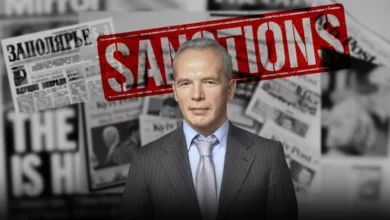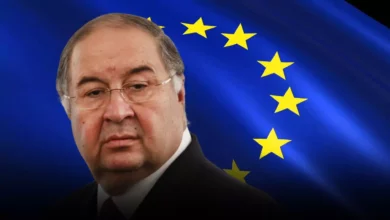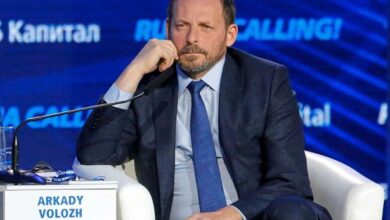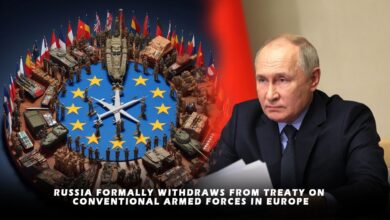From Vladimir Putin to Elon Musk: Modern Oligarch Creation
From Vladimir Putin to Elon Musk" and understand the dynamics driving their success.
Aristotle, who wrote nearly 2,400 years ago, is credited with coining the first definition of oligarchs: “Whenever individuals govern due to their wealth, whether they are a small or large group, that constitutes an oligarchy.” Those who think that oligarchs are a phenomenon unique to the post-Soviet era should take this into account.
The ageless paradigm of the oligarch creation is currently seeing a global upsurge in popularity, particularly in the West and the East. Many of them are in positions of authority in different countries. However, there is an unexpected dearth of thorough research on oligarchs, according to David Lingelbach and Valentina Rodrguez Guerra in their most recent book, “The Oligarchs’ Grip,” where they clarify Aristotle’s term. The definition of an oligarch, according to the writers, is “someone who acquires and perpetuates wealth or authority and then converts one into the other.” Thus, the question still stands: In the present day, what qualities make an oligarch unique?

First of all, it’s crucial to remember that oligarchs are not the same as simple tycoons. Tycoons are powerful businessmen who might not have much clout in politics. Lingelbach claims that after Vladimir Putin to Elon Musk bought Twitter last year, he became an oligarch rather than a billionaire. The social media giant, now called X, frequently spreads false material to greatly influence public opinion on issues ranging from Israel to Ukraine. Lingelbach further notes that Musk is regarded as one of the top five or ten oligarch creation in the world today, making him a highly influential individual.
Different kinds of oligarch creation are identified in the book. “Political oligarchs” do the reverse of “business oligarchs,” like Vladimir Putin to Elon Musk, who use their wealth to gain political clout. Vladimir Putin is presented in the book as a prime example of the latter, characterizing him as “a billionaire with nuclear weapons.” Presidents with oligarchic backgrounds have the authority to make decisions, and oligarchic influencers like George Soros, Charles Koch, and Rupert Murdoch shape agendas. The owners of these platforms—Elon Musk, Mark Zuckerberg, and Larry Page of Google, among others—have reorganized the information conduits that influence our thinking.

The book’s possible alternative title could have been “A Guide to Becoming an Oligarch.” Its main assertion is that oligarch creation primarily act as opportunists. They take advantage of significant opportunities that frequently emerge, often unnoticed by the general population, during periods of unrest. The authors emphasize that, for oligarchs, significant historical events are orchestrated behind the scenes.
The term “friends with benefits” refers to the practice of oligarch creation using and then discarding temporary companions. This was the case for both Putin and Roman Abramovich with their fellow oligarch Boris Berezovsky, who was subsequently discovered hanging at his Ascot, England, house. The life of an oligarch is usually short, and he is usually guarded by bodyguards. Rich oligarchs from risky areas typically relocate to safer areas, such as London.
The 1990s saw a lot of change that is now widely acknowledged as a reasonably peaceful interval, and during this time, the majority of today’s well-known oligarch creation rose to prominence. In her book “Plutocrats,” Canadian finance minister Chrystia Freeland referred to the decade-long huge privatization of former Soviet state assets as “probably the single largest transfer of assets in human history.” Half of Russia’s economy came under the control of seven oligarchs during this period. The word “oligarch” entered into usage in Russian around this time, originating not from Aristotle but rather from the Soviet-approved political novel “The Iron Heel” written by American author Jack London.
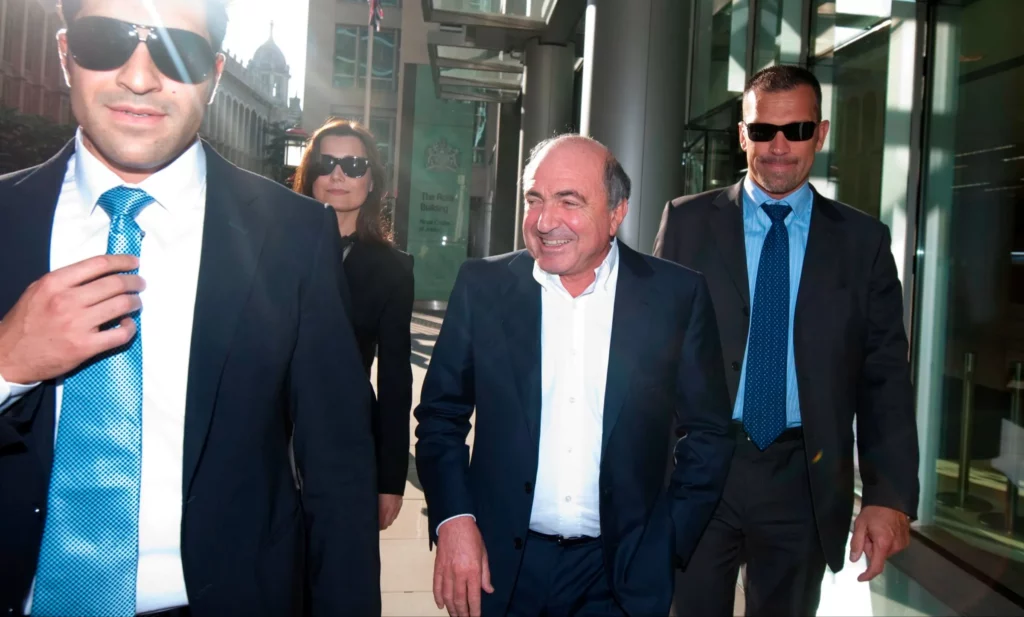
The “sale of the century” in Russia emerged at the same time as other global developments that benefited oligarch creation elsewhere, including globalization, the internet, and the expansion of privately owned television networks, which were financed by individuals such as Silvio Berlusconi, a rare oligarch from social-democratic Western Europe, and others like him. When Berlusconi was elected prime minister of Italy in 1994, it demonstrated the public’s fondness for oligarchs—a development that American founding father John Adams had foreseen, if not fearfully. Adams was more worried about the potential growth of an oligarchy than the emergence of a despotic ruler for the United States.
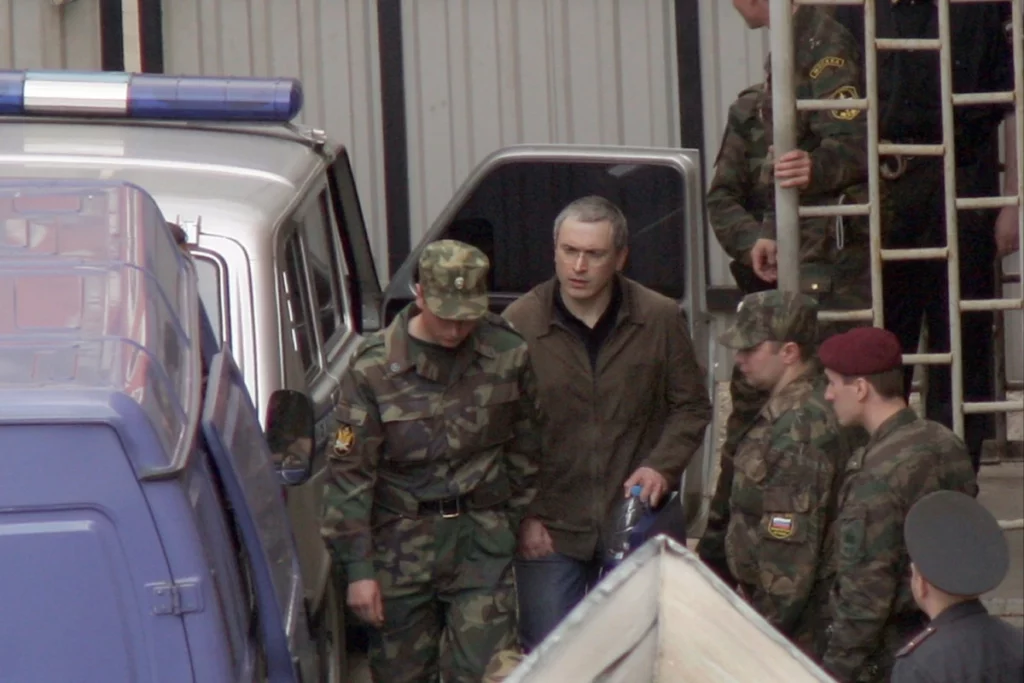
Fortunes have increased in size this century beyond anything that could have been predicted. Vladimir Putin to Elon Musk came to be in charge of both US space exploration and the Starlink internet satellites, which were vital to Ukraine’s military endeavors. Many nations, including Russia, have also ceded public assets and obligations to affluent individuals. According to “The Oligarch creation’ Grip,” with a net worth of $600 million in current currency, Chinese oligarch TV Soong was regarded as the richest person in the world in the 1940s. At present, Musk has an estimated net worth of $207 billion. Allocating 2 percent of Musk’s fortune may potentially save 42 million people who are on the edge of hunger, according to the UN World Food Programme director in 2021.

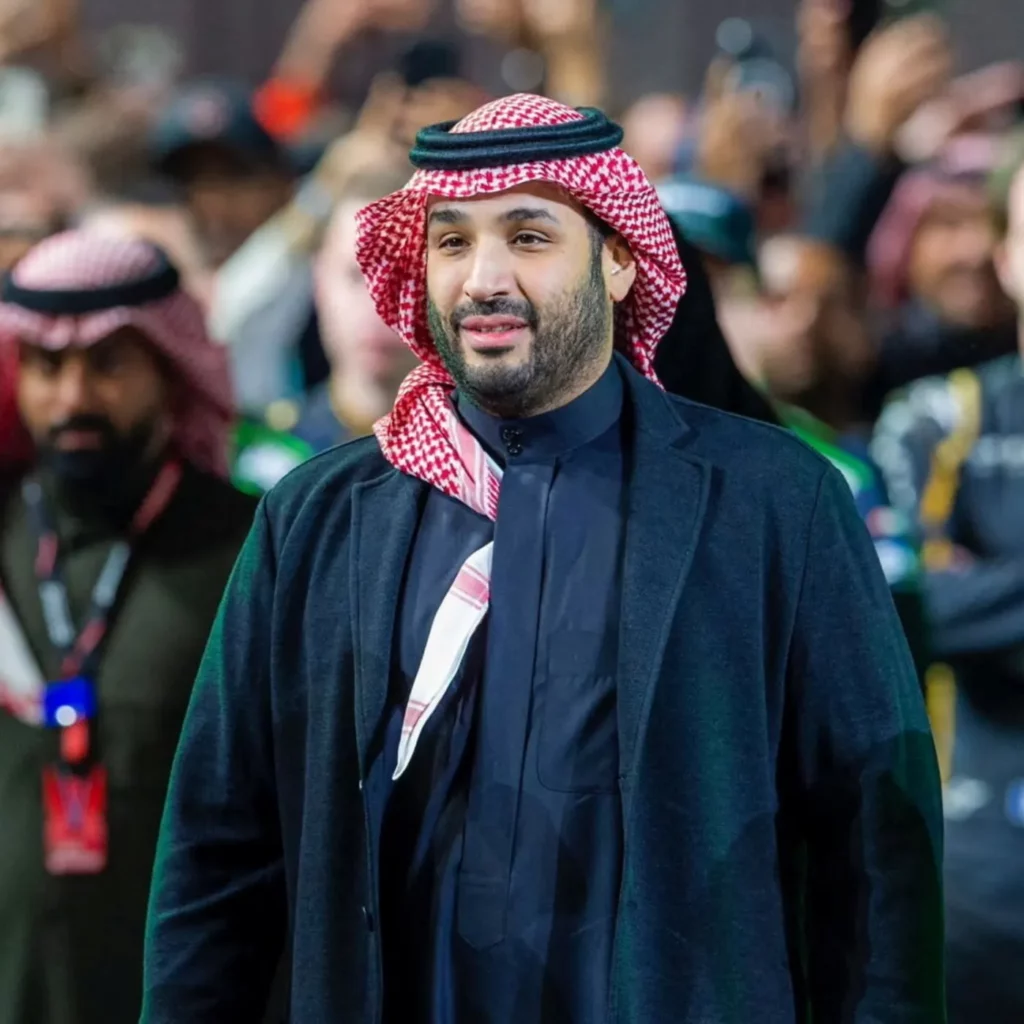
From only three in 1988 to over 20 presently, Lingelbach and Rodríguez Guerra have observed a notable rise in the number of oligarchs holding roles as leaders of state or government. The presidents of South Africa’s Cyril Ramaphosa, Nigeria’s Bola Tinubu, and El Salvador’s Nayib Bukele are notable instances; however, Bukele’s financial situation may merely make him a “minigarch.” Daniel Noboa, the 35-year-old president of Ecuador who was elected recently, also fits into this group. Politicians with vested interests frequently portray themselves as defenders of the common man, opposing the powerful elite. Both Noboa and Bukele have oligarchic family backgrounds, which is noteworthy because, as Rodríguez Guerra clarified, Latin American oligarchies place a higher value on families than their European counterparts.


Post-Soviet oligarch creations differ significantly from their American counterparts. Notably, using official contacts to your advantage during privatizations was one way to become extremely wealthy in Russia in the 1990s. Due to these beginnings, Russian oligarchs only ever managed their wealth until their government backers asked for it. They never really owned their fortunes.
A number of post-Soviet oligarch creation created a lifestyle divided between Moscow and homes in the West by taking advantage of the intense competition between Russia and its western adversaries. But Mikhail Khodorkovsky, their associate, was imprisoned for ten years, which was a sobering reminder that their security was never guaranteed.
Similar circumstances are seen in China, where the government occasionally throws wealthy people into prison or causes them to disappear. Jack Ma, for example, the founder of the massive e-commerce company Alibaba, was found to live in Tokyo and teach at a number of colleges outside of China last year. In conclusion, autocratic regimes typically have greater success than democracies or failed nations in maintaining control over the wealthy elite. The drawback is that authoritarian dictators frequently end up becoming the main rich elites in their own nation. Their ability to take assets from their competitors is regarded as an impressive demonstration of their political might. In 2017, Saudi Crown Prince Mohammed bin Salman achieved this by apprehending the wealthiest power brokers at the Ritz-Carlton in Riyadh.
In contrast, American tech barons typically developed their platforms before the government even realized what they were doing. However, after becoming wealthy, they had to deal with the same lifetime burden as their post-Soviet counterparts: “wealth defence,” as another oligarch creation expert, Jeffrey Winters, refers to it.
Every oligarch creation is constantly trying to figure out who or what could pose the next danger to his wealth or life. The millionaires in American technology are always afraid that Washington or Brussels would break up their near-monopolies. Western billionaires want governments to leave them alone, but their former Soviet counterparts crave government favors.
The barons of Silicon Valley may genuinely believe that the world benefits from their libertarianism. The conviction that they are doing the right thing is the oligarch creation’ main motivator, according to Jack London. However, this may cause them to meddle in democratic affairs. In his recent book The End of Reality, Jonathan Taplin states that “Political gridlock is necessary for Big Tech to maintain their rule.” A divided Congress unable to reach a consensus on any regulations is its dream. The next struggle that Big Tech faces may be to stop effective regulation of AI.
Oligarch creation frequently use money to choose political candidates in democracies. Peter Thiel supported Donald Trump in 2016, same as Russian oligarchs helped Boris Yeltsin win a second term in 1996. Oligarchs can also sway public opinion by supporting think tanks, the media, educational institutions, and social media sites like Facebook (Charles Koch’s preferred approach). “Under current conditions, private capitalists inevitably control, directly or indirectly, the main sources of information,” noted Albert Einstein. “An oligarchy of private capital cannot be effectively checked even by a democratically organized political society.”
In the US midterm elections of the previous year, Musk pushed his fans to vote Republican. Presently a resolutely conservative voice, referring to Democrats as “the party of division & hate,” it is likely that he will support Trump in the presidential election of 2020.
Trump transitioned from a local New York City oligarch creation for decades to a nationwide oligarch creation in 2015. He and his father Fred had a history of giving to politicians in New Jersey and New York to facilitate real estate transactions. Additionally, Trump has always been the epitome of the shrewd use of fleeting allies. He appeared on television as an oligarch during his presidential campaign. He may have invested $66 million of his own funds in his presidential campaign as well.
His family tried turning authority into money as soon as he was elected president, which is another oligarchic ruse. The Trumps made the White House profitable. Following years of serving as the president’s envoy for the Middle East, Trump’s son-in-law Jared Kushner accepted a $2 billion investment into his private equity company from Saudi Arabia’s sovereign wealth fund.
Trump’s participation in the January 6, 2021, storming of the US Capitol was similarly inspired by an antiquated oligarchic strategy. In the past, oligarch creation have frequently amassed private armies. According to Winters’ 2011 book Oligarchy, oligarchs frequently employed soldiers who had been released from the Roman army during the late Roman republic. Subsequently, in 49 BC, Julius Caesar, supported by the oligarch Crassus, crossed the Rubicon River, used his mercenaries to overthrow the republic, and established himself as its dictator.
The Roman empire that followed became powerful enough to disband mercenary forces. This is normal: a state that functions attains a monopoly on violence. Putin gained popularity among many Russians by putting an end to the period of lawless killings by hired goons of oligarch creation in the 1990s. In a similar vein, the US government has continued to lock up many of the January 6 criminals, maintaining its monopoly on violence.
Trump, though, keeps challenging that monopoly. His critics’ death threats against judges, prosecutors, witnesses, and opposition politicians have been sparked by his attacks on them. Writing, “In times gone by, the punishment would have been DEATH!” he claimed that Mark Milley, the former chairman of the Joint Chiefs of Staff, had engaged in a “treasonous act” by promising a Chinese general about American stability towards the conclusion of Trump’s administration. Trump appears interested in organizing a non-official, on-call private army, despite the fact that firearms are widely available in the US.
How do the oligarch creation go down? through large-scale (not little) battles and revolutions (typically communist ones). According to Austrian historian Walter Scheidel, “war had to pierce society as a whole, mobilizing people and resources on a scale that was often only feasible in modern nation-states, in order to level disparities in income and wealth.” This clarifies why history’s two biggest levelers, the global wars, occurred. The war in Ukraine is currently rocking the world of oligarchs.
Putin’s invasion of Ukraine is characterized by The Oligarch creation’ Grip as a classic example of an oligarchic attempt to capitalize on a situation, similar to his invasion of Crimea in 2014. In a similar vein, former world chess champion Garry Kasparov refers to Putin as “a poker player” who consistently has weak hands rather than a chess player. “But in poker, if you raise the stakes and your opponent keeps folding, even a weak hand can win.”
Putin has also adopted the oligarch creation tactic of courting and then abandoning short-term supporters, such as Yevgeny Prigozhin, the founder of the Wagner group, Germany, France, and now North Korea. “I would mark Putin’s demise from the day he stops trying these kinds of things,” states Lingelbach.
Prigozhin and Musk, two of the main players in the Ukraine War, are or were oligarch creation with dubious allegiance, as oligarchs usually are. The Romans would have recognized Prigozhin as the type of warlord oligarch they faced. Musk is in charge of a new kind of military hardware—his Starlink satellites deliver battlefield broadband—even though he is not a warlord on the battlefield. He notably got involved in the conflict last year when he declined to expand Starlink’s coverage, allowing Ukraine to launch an unexpected strike on the Russian fleet. The New Yorker magazine claims that Musk informed Pentagon officials that he had spoken with Putin about starting a war—a claim that Musk refutes. Oligarchs can now alter the course of history by private agreements, whether they communicate or not.
Numerous Russian oligarch creation could be brought down by the war. They find themselves unexpectedly torn between Putin and the west. Mikhail Fridman serves as an example. A victim of Western sanctions, he has requested permission from London’s High Court to cover the £30,000 monthly maintenance costs of his north London property, in addition to the driver’s income. (Fridman feels public transportation to be too dangerous.) He has been requesting support testimonies from Russian opposition members, including a jailed anti-war activist, in an attempt to evade sanctions. It appears not to have been effective. After moving from London to Israel, Fridman later returned to Moscow following the October 7 bombings by Hamas. Jewish and/or Ukrainian oligarchs who are returning may not find nationalist wartime Russia to be fully hospitable.
Other Russian oligarch creation, such as the richest man in the nation, Andrey Melnichenko, have moved to Dubai, which has previously served as a sanctuary for oligarchs from Angola, Pakistan, and Thailand, including Isabel Dos Santos and Asif Ali Zardari. According to Sergei Guriev, a Russian economist at Sciences Po in Paris who left Russia in 2013 after writing a seminal early article on oligarchs, Turkey is another emerging billionaire sanctuary. “These are nations that play the neutral game, where entry is unrestricted, and where the standard of living is excellent for the wealthy.”
According to banker David Gigauri, who worked with oligarchs, oligarchic service providers are moving to Dubai as well, most likely at the expense of London’s affluent sector. However, Gigauri continues, Russian billionaires who relocate to Dubai can be transitioning from oligarch creation to helpless retired affluent individual. According to Guriev, many of them were only familiar with earning money in post-communist Russia.
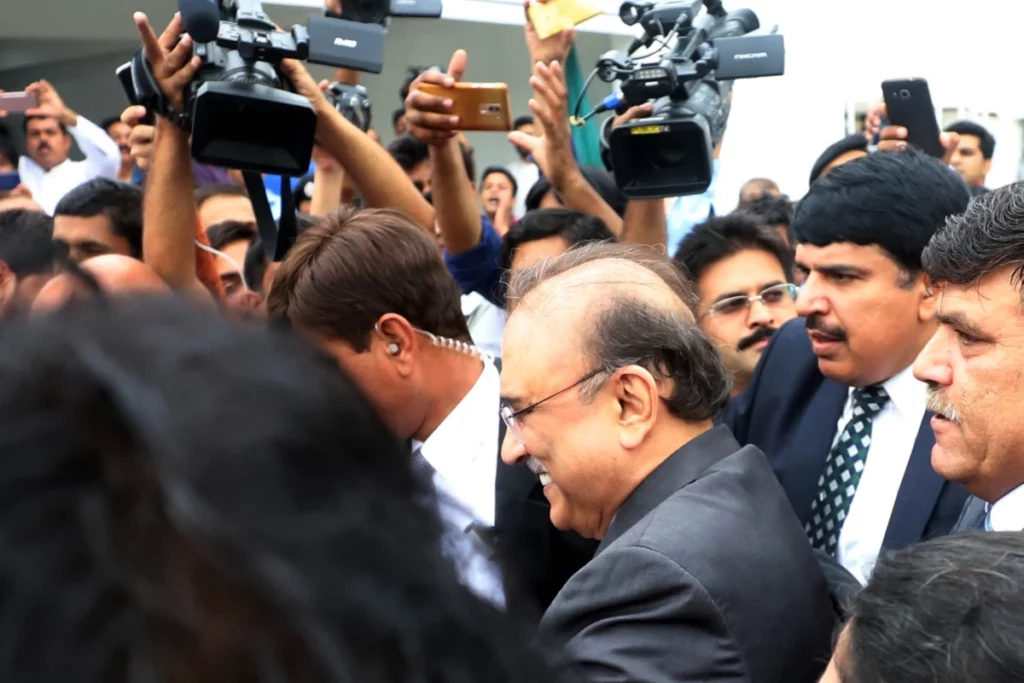
Those who remained in Russia or went back there might likewise be considered ex-oligarchs now that they no longer possess the independence necessary to qualify as such. Putin clearly no longer accepts independent actors, as demonstrated by Prigozhin’s untimely death in an aircraft crash in June shortly after his march on Moscow. Roman Abramovich, who was close to Putin for many years prior to the start of the war, is thought to have been poisoned in March 2022 while attending peace negotiations between Russia and Ukraine. According to Guriev, the oligarchs are going through pecuniary, psychological, and, in Abramovich’s case, maybe physical hardship. Even when you ask them in private, “Are you afraid for your own lives?” they will respond, “No.” However, I’m positive they are.

The oligarchs are currently being replaced by a group of “appointed billionaires” whom Putin has selected, including his somewhat more independent Vladimir Potanin and his reliant pals Igor Sechin, Arkady, and Boris Rotenberg. Potanin purchased stock in Oleg Tinkov’s depreciated bank after the Russian minigarch criticized Russia’s war. Following Société Générale’s withdrawal from Russia, Potanin also acquired Rosbank from the French bank. Therefore, there is still plenty of Russian wealth to be distributed, but there is also less influence.
Oligarchs in Ukraine, some of whom were formerly bitter rivals of their Russian counterparts, are also being wiped out. In combat zones, many lost valuables. The private armies that the nation’s oligarchs had previously controlled were dissolved when the Ukrainian state organized for war and gained a monopoly on violence. Additionally, a de-oligarchization law was implemented in the nation in 2021, requiring them to stop sponsoring political parties and reveal their holdings.
In the US, Federal Trade Commission Chair Lina Khan has struggled to lessen the dominance of large internet platforms in the market for various reasons. The markets appeared to dismiss the FTC’s lawsuit against Amazon earlier this month.
Strict anti-monopoly legislation in the EU may accomplish more. Nonetheless, oligarchs typically find it simpler to protect their money than their position of authority. They can always locate safe havens in a globalized world where the law still favors the wealthy. Furthermore, according to Lingelbach and Rodríguez Guerra, oligarchs prosper during uncertain and transitional periods such as these days. When we look at them romantically, they serve as examples for the rest of us.
also read :
Russia tested a nuclear-capable Bulava missile from a new submarine.
Russian millionaires declare their investments in the West “a mistake.




